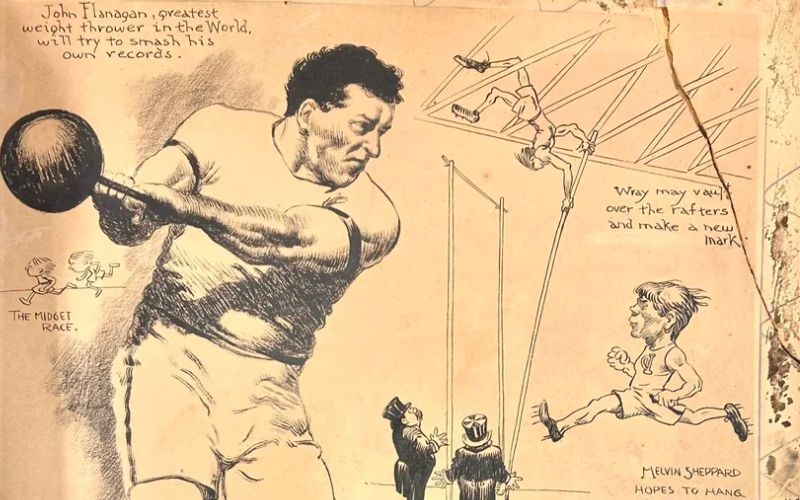It started on Saturday night, when I left my laser card in the card machine at a music venue where my friend’s band was performing. Somewhere between typing in the digits on a keypad, and hearing the first blast of the brass section, I left the darned thing behind me.
The following day(after going through two bags of garbage, piece by piece, and tearing up the house), I realized what had happened, and immediately contacted the venue to see if I could come pick up my card. But the woman on the phone referred me to a company that “takes care of that for us.” A company to deal with their lost items? How many people lose that many things?
Apparently a lot. Or at least enough to support a business. Meet WeFoundIt: a 3-month old startup whose business it is to reunite people with their lost items.
Disheartened by the idea of having to contact a third party, but still hoping to find my card, I followed WeFoundIt.ie's instructions and submitted my claim online. I fully expected to wait for a week and not hear anything back. But lo and behold, within ten hours, my email inbox informed me that, indeed, WeFoundIt had found my lost item, and I could come pick it up that afternoon.
It was with delight, but more than a little inconvenience, that I took two buses to the company's office, which is tucked away in the back of a warehouse in the less-than-glamorous Jamestown Business Park in Finglas.
After reuniting me with my card, Richard McGuinness, founder of WeFoundIt, explained the way the company works.
WeFoundIt receives lost items from its clients – hotels, schools, nightclubs, car rental outfits, etc. – and stores them in its warehouse. For 5 Euro, people whose items have been found can pick up their lost items, or for an additional fee, have it shipped to their houses.
But McGuinness and his colleagues don’t just store items until they’re retrieved - they actually track down owners for each and every item they possibly can.
“We got a coat back on a dry cleaning tag one time,” McGuinness offered excitedly, in a little room above WeFoundIt’s massive storage space, before giving me a tour of the premises.
It was like a high school “lost and found” room, only for the entire city of Dublin.
Racks with clothes of every different shape and size imaginable; a stack of garbage bags labeled ‘OxFam’ and ‘Electronic Recycling’ in the corner, and rows of neat plastic boxes on shelving units holding shoes, purses, cell phones, passports, and the most random selection of people’s possessions.
“I don’t know what the heck that is,” McGuinness said, looking at a 6-pack of black and red plastic water bottles in a milk-bottle carrying case on one of the shelving units. Moving on to a shelf with Wellington boots and nightclub-worthy ankle boots, he, naturally comical, observed, “We have a fair amount of odd shoes.”
He then picked up a dirty, used-looking plastic tennis racket toy, played with it a little. While still swinging it back and forth, he admitted, some things may have been deliberately left behind.
“We hold everything regardless of its value,” said McGuinness, “because it could be valuable to somebody.”
The way the company works is somewhat like one of those companies that reunites long-lost relatives.
An item comes into the warehouse, the team works to get every scrap of identifying information it can about its owner, and then, staffers track that person down through any means possible – even sifting through Facebook and Myspace profiles.
If a laptop or USB storage device is found, for example, WeFoundIt staffers will search through files to find the owner’s name in a document, on a playlist, etc., and then, they will contact the owner through his employers, school officials, or online social media profile.
It does smell of an invasion of privacy of sorts, but McGuinness assured me that he “met and discussed these issues with the data commissioner, and he gave me the thumbs up.” Since the items are lost, technically, they are out of the owner’s control anyway. Besides, he reasoned, most people would rather have their privacy invaded than lose all of their term papers or important documents because of a lost USB drive.
WeFoundIt has collected over 2000 items, and has reunited about 300 items with their owners, since the company took off in August, McGuinness estimated. He also said that about “60-70% of the owners, we have found.” That is, the company has personally tracked down the majority of its customers, while the rarer cases are people who come to the company looking for the items they've lost.
Like a grandmother scolding her grandchild for not clearing his plate, McGuinness shook his head as he recalled the amount of valuables that were never been reclaimed by owners.
“In that Oxfam bag, there’s Gant, Ralph Lauren, you know, some spanky stuff that nobody’s bothered looking for,” he said. “In a recession, you’d think people wold be more conscious.”
McGuinness recounted hearing a potential transportation client mention that its lost and found contained things like Zimmer frames, walking sticks, and even, fake legs.
“I just don’t understand,” he pondered, “how could people get on at one end with a fake leg and not need it when they get off?”
Everything that isn’t reclaimed by its owner after 8 weeks is, depending on the product, donated to OxFam, sent to textile recyclers, donated to electronic recyclers, or shredded; passports are sent back to the government, and laser cards are disposed of after the WeFoundIt team calls the bank to report them lost. Some of the electronics are sold for value after their hard drives or sim cards are shredded to retain privacy.
McGuinness’ approach to the business is, in a charming way, as personal as it gets.
He said he often takes photos of his happiest customers after they’ve been reunited with their items(hence, the tagged photo). I’ve already been Facebook-friended and tagged in a photo by WeFoundIt.
During our meeting, McGuinness even mentioned one story about trying to return a missing wallet. He had tracked down a woman through the contents of her wallet, called her, and she confirmed that it was her lost item. She said she’d come and pick it up, but, even after several more phone calls, she never arrived.
“I took it as a personal affront that she hadn’t bloody come in for it,” he said, and despite the humorous way in which he relayed the story, he meant it.
Maybe it says something about our society that a company such as this even exists.
We have become so used to being hand-held and spoon-fed that we need somebody to track us down, tell us we've lost something, and that they'll hang onto it until we can come pick it up. Sometimes I think we behave more like spoiled children than responsible adults.
But then again, we all make mistakes. Forget appointments. Miss birthdays. And even, leave laser cards in machines when we’re not paying attention. In this case, I’m all for someone, or some company, giving me a helping hand.




Comments